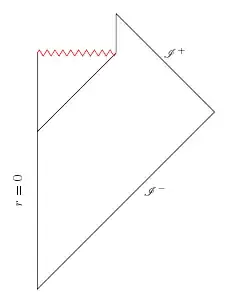There is the problem that is bothering me with the black hole evaporation because of Hawking radiation.
According to Hawking theory the black hole will evaporate in finite time because of quantum effects randomly producing particle-antiparticle pairs on the opposite sites of horizon.
However, the gravity causes the time dilatation, which goes to infinity on the horizon itself, so the arbitrarily small amount of time from horizon's perspective is going to be infinitely long from external observer's perspective?
So, from which perspective is the time the black hole will evaporate calculated? If it is calculated from horizon's perspective, it would mean, the black hole will never evaporate from the external observer's perspective?
